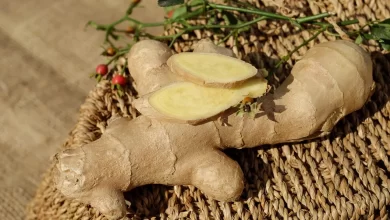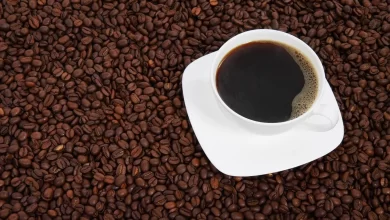Avocado, often referred to as “nature’s butter,” is a nutritious and versatile fruit with a creamy texture and a mild, nutty flavor. It is known for its rich content of healthy fats, primarily monounsaturated fats, which can promote heart health. Avocados are also packed with essential nutrients like potassium, fiber, vitamins C, E, and various B vitamins. They have become a popular ingredient in a wide range of dishes, from guacamole and salads to smoothies and sandwiches, adding both flavor and creaminess. Avocados have gained widespread recognition for their potential health benefits and their role in culinary creativity, making them a beloved and iconic ingredient in modern cuisine.
- Despite its savory taste and common use in savory dishes, avocados are technically a fruit, specifically a berry.
- Avocado cultivation can be traced back to at least 5,000 B.C. in Central and South America. The word “avocado” comes from the Nahuatl (Aztec) word “āhuacatl.”
- There are over 500 different varieties of avocados, but Hass avocados are the most widely recognized and consumed type.
- Avocados are nutrient powerhouses, containing healthy monounsaturated fats, fiber, potassium, vitamins K, C, E, and various B vitamins.
- The monounsaturated fats in avocados are known to promote heart health by reducing bad cholesterol levels.
- Despite their relatively high calorie content, avocados can aid in weight management due to their fiber and healthy fat content, which can help with feelings of fullness.
- Avocado pits are the largest seeds of any fruit, and they’re often planted to grow new avocado trees.
- Avocados don’t ripen on the tree; they mature and then ripen after they are picked. You can speed up the ripening process by placing them in a paper bag with a banana or apple.
- Avocado can be used as a healthier substitute for butter or mayonnaise in recipes, adding creaminess without the saturated fats.
- Guacamole, a popular dip made primarily from mashed avocados, is a traditional Mexican dish and a staple in many cuisines.
- Avocado toast, a simple and nutritious dish, gained popularity in the 21st century and has become a trendy breakfast item worldwide.
- Avocado trees are now grown in many countries around the world, including the United States, Mexico, Chile, Peru, and Kenya.
- Avocado is sometimes referred to as the “alligator pear” due to its green, bumpy skin.
- Avocado oil, derived from the fruit, is used for cooking, skincare, and hair care due to its high smoke point and moisturizing properties.
- Avocados are often considered a “superfood” because of their impressive nutrient profile and potential health benefits.
- Mexico is the largest producer of avocados globally, particularly from the state of Michoacán, which is often referred to as the “Avocado Capital of the World.” The country harvested about 2.4 million tons of avocados in 2021.
- Avocado trees rely on bees and other pollinators for fruit production. Some avocado varieties have “A” and “B” flowering types to encourage cross-pollination.
- Avocado orchards are often considered more environmentally friendly than some other types of agriculture due to the trees’ ability to tolerate drought and their relatively low pesticide usage.
- In 2016, the Unicode Consortium introduced an official avocado emoji, which quickly became popular in messaging and social media.
- Some places, like Carpinteria, California, host annual avocado festivals to celebrate this beloved fruit with food, music, and various avocado-themed activities.
- Avocado fossils dating back to the Pleistocene era have been found in Mexico, indicating that avocados have been around for millions of years.
- Apart from the Hass avocado, there are other distinctive avocado varieties such as Bacon, Fuerte, Pinkerton, and Zutano, each with its own flavor and texture.
- Avocado is not limited to savory dishes; it is also used in sweet treats like avocado ice cream and avocado chocolate mousse.
- Due to its numerous health benefits, avocados have been associated with various health claims, including improved digestion, skin health, and even potential cancer prevention.
- National Avocado Day is celebrated on July 31st in the United States, recognizing the popularity and versatility of this fruit.
- In some cultures, avocados are considered a symbol of love and fertility, and they are often given as gifts to newlyweds.
- Avocado enthusiasts have found creative uses for avocado seeds, such as making jewelry, dyeing fabrics, and even carving decorative objects.
- You can grow an avocado tree from a seed by suspending it in water until it sprouts roots and then planting it in soil.
Nutrition Facts of Avocado
Here are the nutrition facts of 7-ounce (201-gram) avocado.
- Energy (calories): 322
- Fat:30 grams
- Protein4 grams
- Carbs:17 grams
- Fiber: 14 grams
- Vitamin C:22% of the daily value (DV)
- Vitamin E: 28% of the DV
- Vitamin K:35% of the DV
- Riboflavin (B2):20% of the DV
- Niacin (B3):22% of the DV
- Pantothenic acid (B5):56% of the DV
- Pyridoxine (B6): 30% of the DV
- Folate: 41% of the DV
- Magnesium: 14% of the DV
- Potassium: 21% of the DV
- Copper: 42% of the DV
- Manganese: 12% of the DV






